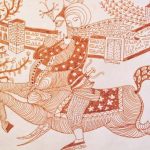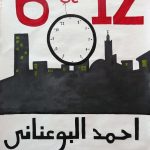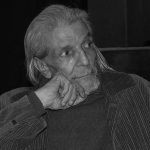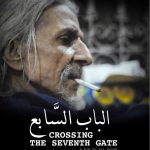OBOUR AL BAB ASSABEA, la septième porte
ALI ESSAFI
OBOUR AL BAB ASSABEA, la septième porte
Un film de ALI ESSAFI
2017 | Documentaire | 80 mn | Cinemaat Productions
Producteur
CINEMAAT PRODUCTIONS
a.essafi@gmail.com
Distributeur
Cinemaat Productions
a.essafi@gmail.com
La Septième Porte est le titre d’un livre d’histoire sur le cinéma marocain de 1907 à 1986 d’Ahmed Bouanani (1938-2011). Trois cents pages écrites à la main qui n’ont jamais été publiées. Ali Essafi a rencontré Bouanani trois ans avant sa disparition : extraits de films, conversations filmées et autres documents cartographient l’univers artistique du poète, cinéaste et essayiste dont l’indépendance et l’intégrité restèrent toujours intactes.
« Quand je lui ai demandé pourquoi un artiste comme lui s’aventurerait dans un tel travail de recherche historique, Ahmed Bouanani a rétorqué: ‘Tout simplement parce que j’en avais besoin et qu’il n’existait aucun ouvrage de référence sur la question. Puis j’avais le sentiment que personne n’allait le faire de sitôt !’ Ce pressentiment était juste : Trente ans plus tard, la situation est la même. Pire, ce travail de recherche indispensable n’a toujours pas été édité depuis son achèvement ». Par le biais de ses conversations avec Ahmed Bouanani, Ali Essafi reviendra sur l’importance du travail de ce dernier pour la constitution d’une conscience cinématographique marocaine et la transmission de son histoire.
Cinéaste et écrivain marocain, Ahmed Bouanani, auteur notamment du Mirage (long métrage, 1980) et de L’hôpital (récit, 1990), est mort en 2011 en laissant un coffre rempli de manuscrits, de dessins, de scénarios inédits : une véritable œuvre à venir.
La Septième Porte (The Seventh Door) is the title of a 300-page film historical work dedicated to Moroccan cinema between 1907 and 1986. It was written by Ahmed Bouanani (1938–2011) by hand over many years, but was never published. Neither his contribution to film history nor the five films (four of them shorts) he made between 1966 and 1980, which also pursue the politics of memory, could count on support in postcolonial Morocco. Ali Essafi’s portrait film equally takes a stand against the state-driven policy of forgetting. He visited Bouanani three years before the latter’s death. The filmmaker, poet and novelist who also made drawings was leading a reclusive life in a remote village with his wife Naïma and many cats, living in the midst of huge piles of books and manuscripts, those that had been spared from a devastating fire. He was physically frail but unbroken in spirit. The discussions about how he saw his position, censorship, the filmmaking ban he received and his work as a film editor are combined with film excerpts, photos, a TV interview and other documents to map out the contours of an independent artist and his oeuvre that are both full of integrity.
- Maroc, 2017
- Écrit et réalisé par/Written and directed by Ali Essafi
- Directeur de la Photographie/Director of Photography Hakim Belabbes, Hassan Ouazzani, Ali Essafi
- Montage/Editor Chaghig Arzoumanian
- Son/Sound Rana Eid, Touda Bouanani, Ali Essafi
- Producteurs/Producers Ali Essafi, Cinemaat Prod Rasha Salti
Festivals :
Berlinale, 2017
Festival du Réel, Paris, 2017
ALI ESSAFI
Né au Maroc, Ali Essafi étudie la psychologie en France et se dirige ensuite vers le cinéma documentaire et Art & Essai. En 1997, il réalise son premier film, Général, nous voilà!, suivi de Le Silence des champs de betteraves, 54 min, 1998; Paris mois par moi, 26 min, 1999; Ouarzazate, 55 min, 2001; Al Jazira, les Arabes de 1424, 66 min, 2002; Le Blues des Shikhates, 57 min, 2004; Fuite, 29 min, 2011. En 2015, il réalise deux films : Le Cosmonaute, 80 min et Nos sombres années 70, 75 min. Obour al bab assabea (Crossing the Seventh Gate ou La Septième Porte), est son dernier film, présenté à la Berlinale et au Festival du Réel. De retour au Maroc, en 2003, il anime plusieurs ateliers d'écriture de film et milite pour la reconnaissance du cinéma documentaire, tout en conduisant des recherches sur les archives cinématographiques et l’histoire de l’image en Afrique du Nord. Ces recherches ont donné lieu à des créations de films et d’installations, comme Wanted, une commande de la 10e Biennale de Sharjah; ainsi que l’installation Halaqat Nord-Africaines, qui a été montrée lors de la 11e Biennale de Dakar.
Born in 1963 in Fez, Morocco. He completed a degree in Psychology in France, where he began working as an assistant director on numerous documentary and feature films from 1991. In 1997, he made his first film, Général, nous voilà!. He returned to Morocco in 2002, and was the artistic director for Moroccan television (SNRT) from 2006 until 2009. Ali Essafi works as a filmmaker, curator, cinematographer, and video artist.

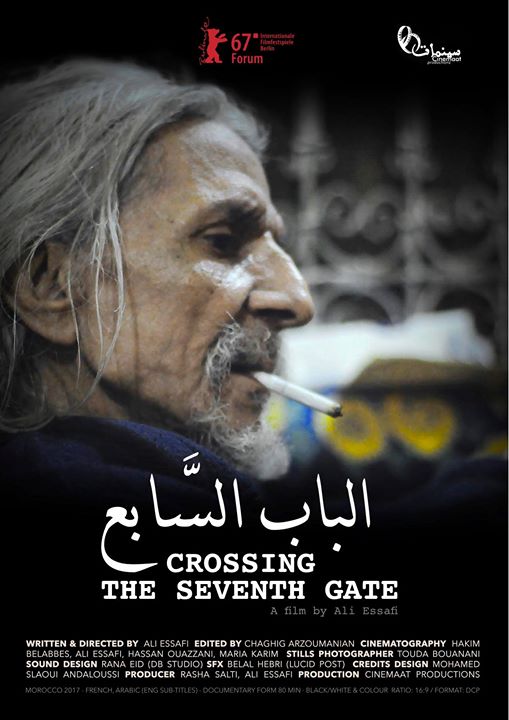 PHOTOS
PHOTOS